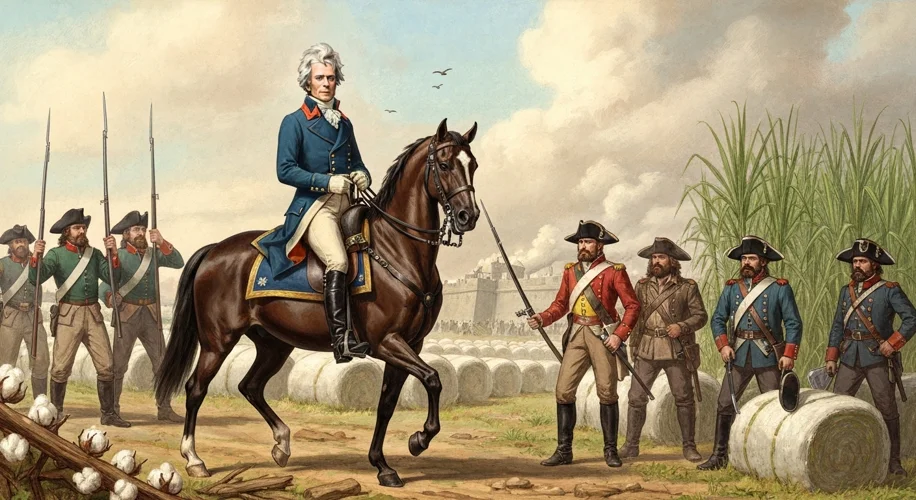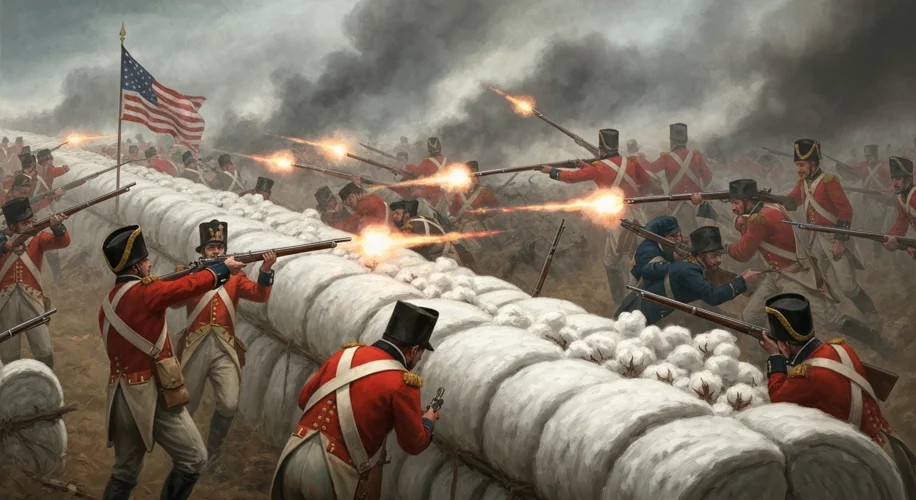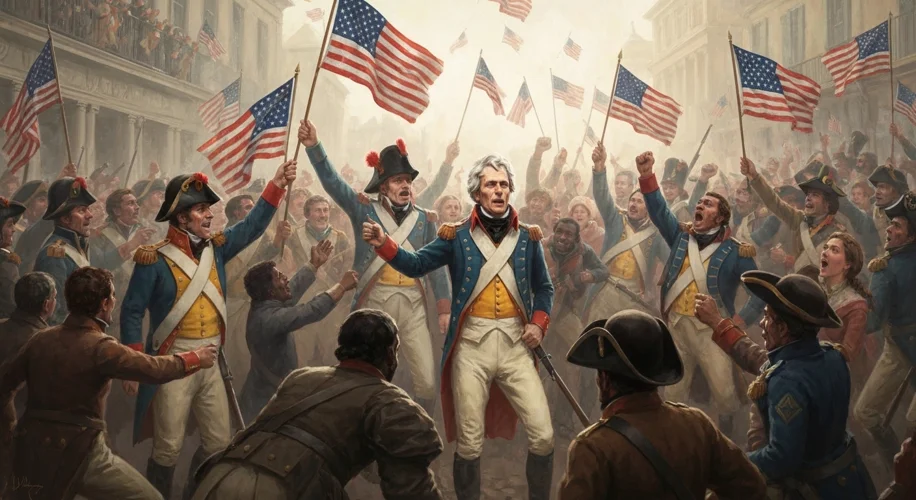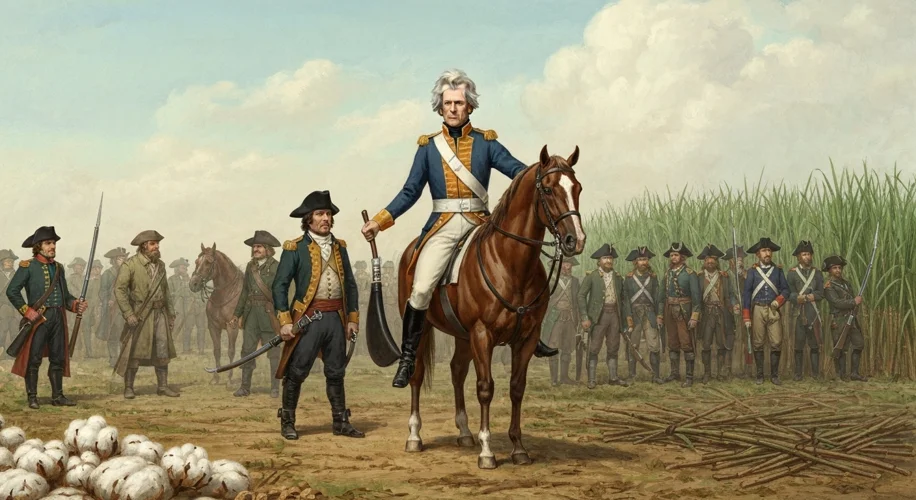The year is 1815. The air in America hangs heavy with uncertainty. The War of 1812, a conflict many had deemed unnecessary, is drawing to a confused close. In Europe, Napoleon’s star was fading, and a peace treaty, the Treaty of Ghent, had actually been signed on December 24th, 1814. Yet, across the Atlantic, the cannons were still roaring.

Nowhere was this strange temporal disconnect more evident than on the muddy banks of the Mississippi River, near New Orleans. This vibrant, cosmopolitan city, a vital port for the young United States, found itself the target of a formidable British invasion force. Their objective: to seize this strategic gateway, cripple American trade, and perhaps even redraw the map of North America.
The British, emboldened by their successes in Europe and their recent burning of Washington D.C., were confident. They fielded a seasoned army, veterans of Wellington’s campaigns, eager to add another jewel to the imperial crown. Their commander, Major General Sir Edward Pakenham, was a man of repute, brother-in-law to Wellington himself. His troops were arrayed in their gleaming redcoats, a sight that had struck fear into the hearts of enemies across the globe.
Facing this professional force was a ragtag assembly, a testament to the wild, untamed spirit of the American frontier, led by a figure as formidable and unconventional as the land he defended: Andrew Jackson. Known as “Old Hickory” for his toughness and resilience, Jackson was a man forged in the crucible of frontier warfare. His army was a motley crew – hardened Tennessee and Kentucky riflemen with their deadly accurate long rifles, Louisiana militiamen, free men of color, and even a band of Jean Lafitte’s notorious Baratarian pirates, their cutlasses and pistols adding a unique, if unsavory, element to the defense.
Jackson, alerted to the impending British attack, understood the stakes. He declared martial law, his iron will galvanizing the disparate defenders. He knew that conventional tactics would likely fail against the disciplined British. His strategy was one of calculated defense, utilizing the unique landscape and the raw courage of his men. The battlefield he chose was the narrow strip of land known as the Chalmette plain, just south of New Orleans.
Here, Jackson’s engineers constructed formidable earthwork defenses, famously bolstered with packed cotton bales – a material surprisingly effective at absorbing British musket balls. The stage was set for a confrontation that would be etched into the annals of American history.
On January 8th, 1815, under a clear winter sky, the British advanced. The battle was a brutal affair. Wave after wave of redcoats marched towards the American lines, expecting to break them with sheer firepower and bayonets. But they were met not with disorganized resistance, but with a hail of lead from the sharpshooting Americans. The devastating accuracy of the Kentucky and Tennessee riflemen, coupled with the concentrated artillery fire from Jackson’s batteries, tore through the advancing British ranks.

The fighting was fierce, hand-to-hand combat erupting in the chaos. Pakenham himself was mortally wounded, felled by American fire, and his second-in-command, General Keane, also met his end. The British, shattered and disorganized, their leadership decimated, were forced into a humiliating retreat. The cost was staggering: over 2,000 British casualties compared to a mere handful for the Americans.
The victory was astounding, almost unbelievable. It was a triumph born of grit, ingenuity, and the fierce determination of a diverse group of Americans united under a single, unyielding leader. But the most poignant, and perhaps the most historically significant, aspect of this victory was its timing. The Treaty of Ghent had been signed weeks before. The war, for all intents and purposes, was already over.

Yet, the news of the battle’s outcome, traveling slowly across the Atlantic, arrived in America months later, igniting a firestorm of national pride. The Battle of New Orleans was hailed as a decisive triumph, a testament to American valor and military prowess. It served as a much-needed balm for a nation weary of war and divided by internal strife. In an era where the young United States was still struggling to assert its identity on the world stage, this improbable victory provided an unparalleled boost to national morale and fostered a powerful sense of unity.
The battle cemented Andrew Jackson’s reputation as a national hero, paving the way for his future presidency. More profoundly, it helped shape a nascent American identity, fostering a narrative of resilience, independence, and the ability to overcome seemingly insurmountable odds. The echoes of that January day in 1815 reverberated far beyond the battlefield, helping to forge the very soul of a nation.

